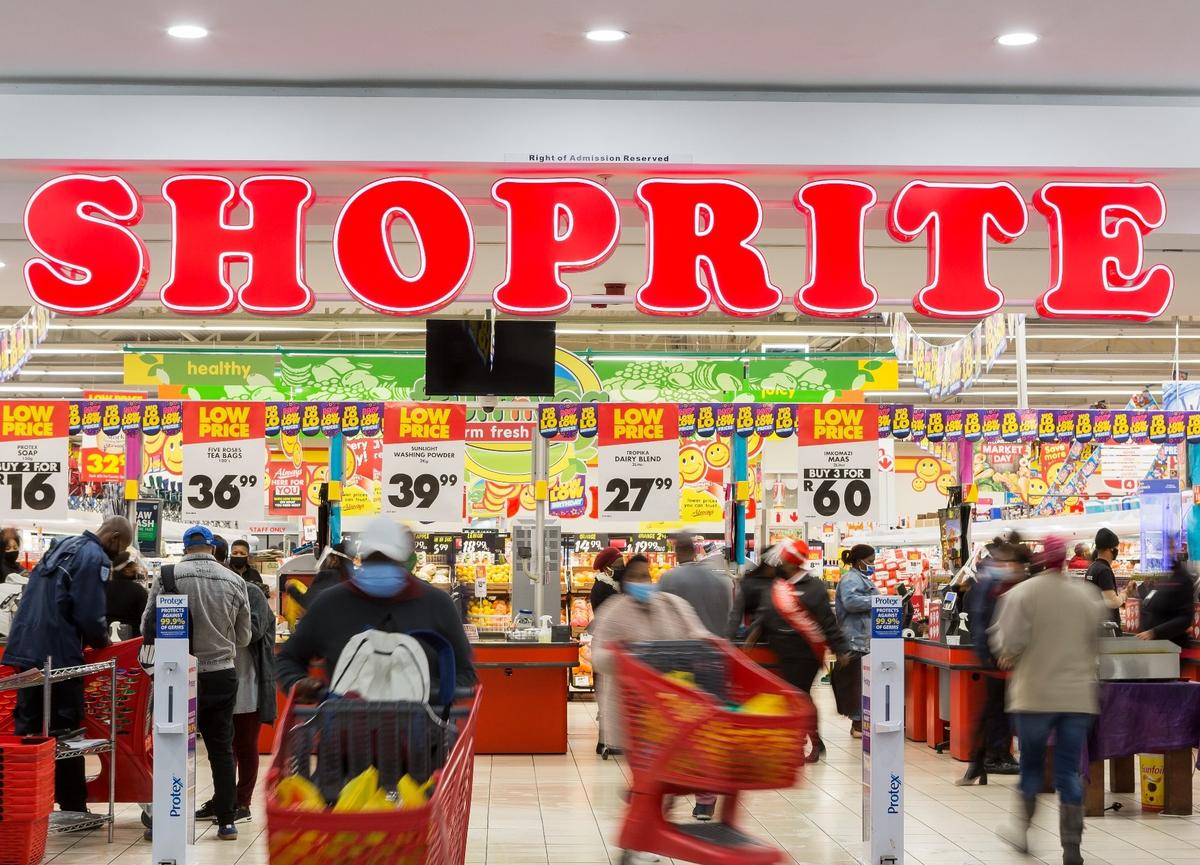Shoprite is more than just a supermarket; it has become a household name in Africa, providing a wide range of products and services to millions of customers. Founded in 1979, this supermarket chain has grown exponentially, becoming the go-to destination for grocery shopping in various countries across the continent. In this article, we will delve into the history of Shoprite, its business model, product offerings, and much more.
With over 2,800 stores in 15 countries, Shoprite has established itself as a leader in the retail sector. The supermarket chain prides itself on offering low prices and a vast selection of goods, making it a favorite among consumers. In addition, Shoprite has made significant strides in adapting to the changing retail landscape, including expanding its online presence and implementing innovative shopping solutions.
This article aims to provide a comprehensive overview of Shoprite, including its history, store formats, product offerings, and commitment to sustainability. By understanding the factors that contribute to its success, you can gain valuable insights into the retail industry in Africa and the role Shoprite plays in shaping consumer behavior.
Table of Contents
- 1. History of Shoprite
- 2. Business Model and Growth Strategy
- 3. Store Formats and Offerings
- 4. Product Offerings
- 5. Commitment to Sustainability
- 6. Community Engagement and Social Responsibility
- 7. Online Presence and E-Commerce
- 8. Conclusion
1. History of Shoprite
Shoprite's journey began in 1979 when the first store was opened in Cape Town, South Africa. The founders, Whitey Basson and his team, aimed to create a value-driven supermarket that would cater to the needs of the average consumer. Over the years, Shoprite has expanded its footprint, acquiring various store chains and enhancing its market presence.
In 1990, Shoprite listed on the Johannesburg Stock Exchange, which marked a significant milestone in its growth trajectory. The supermarket chain's expansion into other African countries, including Namibia, Nigeria, and Zambia, has solidified its position as the largest supermarket retailer on the continent.
Key Milestones in Shoprite's History
- 1979: Opening of the first Shoprite store in Cape Town.
- 1990: Listing on the Johannesburg Stock Exchange.
- 2000: Expansion into the rest of Africa, starting with Namibia.
- 2018: Launch of the Shoprite online store.
2. Business Model and Growth Strategy
Shoprite operates on a low-cost business model, which allows it to offer competitive pricing on a wide range of products. The supermarket chain focuses on high-volume sales to achieve economies of scale, enabling it to pass on savings to customers. This approach has been instrumental in attracting a large customer base across various demographics.
The growth strategy of Shoprite includes:
- Expanding its store footprint across Africa.
- Acquiring smaller retail chains to enhance market presence.
- Implementing cost-saving measures to maintain low prices.
3. Store Formats and Offerings
Shoprite operates several store formats, including:
- Shoprite Hypermarkets: These are large-format stores that offer a wide range of groceries, household goods, and clothing.
- Checkers: A premium supermarket brand that offers higher-end products and gourmet food items.
- Usave: A discount supermarket chain that focuses on providing essential products at lower prices.
- Shoprite LiquorShop: A dedicated store for alcoholic beverages.
4. Product Offerings
Shoprite's product offerings are diverse and cater to various consumer needs. The supermarket chain stocks the following categories:
- Groceries: Fresh produce, dairy, meat, and pantry staples.
- Household Goods: Cleaning supplies, personal care products, and home accessories.
- Clothing: Affordable clothing options for men, women, and children.
- Electronics: Selected electronic goods and appliances.
5. Commitment to Sustainability
Shoprite is dedicated to sustainability and has implemented several initiatives to minimize its environmental impact. These include:
- Reducing plastic waste by encouraging customers to use reusable bags.
- Implementing energy-efficient systems in stores to reduce electricity consumption.
- Supporting local farmers and suppliers to promote sustainable sourcing.
6. Community Engagement and Social Responsibility
Shoprite believes in giving back to the communities it serves. The supermarket chain is involved in various social responsibility initiatives, including:
- Supporting food security programs through donations to local charities.
- Promoting education by funding scholarships and educational programs.
- Encouraging employee volunteerism in local community projects.
7. Online Presence and E-Commerce
With the rise of e-commerce, Shoprite has adapted by launching its online shopping platform. Customers can conveniently browse and purchase products online, with options for home delivery or in-store pickup. This move has allowed Shoprite to reach a broader audience, especially during the COVID-19 pandemic when many consumers turned to online shopping.
8. Conclusion
Shoprite's success story is a testament to its commitment to providing quality products at affordable prices. With its extensive product offerings, diverse store formats, and dedication to sustainability and community engagement, Shoprite continues to be a leader in the African retail market. As consumers increasingly seek convenience and value, Shoprite's growth trajectory is likely to remain strong.
We encourage you to share your thoughts on Shoprite or your experiences shopping at their stores in the comments below. Don't forget to explore more articles on retail trends and insights on our website!
Thank you for reading, and we hope to see you back here for more engaging content!
You Might Also Like
Top 10 Ullu Web Series To Watch In 2024Piper Perabo Younger: Unveiling The Journey And Career Of The Acclaimed Actress
Ullu Web Series Name List 2024: Must-Watch Titles For The Year
Exploring The Life And Career Of Anna Torv: A Comprehensive Overview
Eilish Holton Today 2024: A Comprehensive Look At Her Journey
Article Recommendations
- The Truth About Lance Barbers Shocking Weight Loss
- Discover The Lyrics Of Silver Springs A Mustread For Music Lovers
- David Muir Wife Pic


